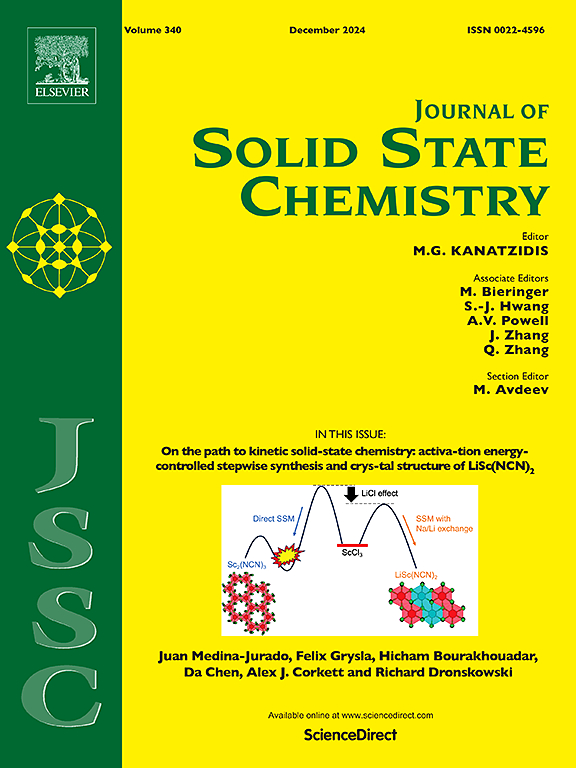The effective role of open metal sites in defective quasi-MOF-801 as hydrogen generation reactions catalyst
IF 3.2
3区 化学
Q2 CHEMISTRY, INORGANIC & NUCLEAR
引用次数: 0
Abstract
Converting metal-organic frameworks (MOFs) to quasi-MOFs is a thermally controlled manner for removing the ligands, generating structural defects, and increasing porosity. In the hydrolysis of NaBH4, unsaturated metal centers serve as catalysts to release hydrogen. The Response Surface Methodology (RSM) technique determined the optimal catalytic reaction conditions. The quasi-MOF-801 framework produced at 280 °C (Q801-280) demonstrates the highest turnover frequency in the series, measuring 10500 ml min⁻1 g⁻1 at room temperature in the absence of a base. It has an activation energy of 55.98 kJ mol⁻1. The exceptional catalytic performance of Q801-280 can be attributed to its unique structure, which includes micropores, mesopores, and unsaturated Lewis acid sites. It supports the Langmuir-Hinshelwood model, indicating that both reactants are adsorbed on the catalyst surface. The catalyst dosage and BH4− concentration also significantly influence the reaction.

有缺陷的准MOF-801 中开放金属位点在制氢反应催化剂中的有效作用
本文章由计算机程序翻译,如有差异,请以英文原文为准。
求助全文
约1分钟内获得全文
求助全文
来源期刊

Journal of Solid State Chemistry
化学-无机化学与核化学
CiteScore
6.00
自引率
9.10%
发文量
848
审稿时长
25 days
期刊介绍:
Covering major developments in the field of solid state chemistry and related areas such as ceramics and amorphous materials, the Journal of Solid State Chemistry features studies of chemical, structural, thermodynamic, electronic, magnetic, and optical properties and processes in solids.
 求助内容:
求助内容: 应助结果提醒方式:
应助结果提醒方式:


